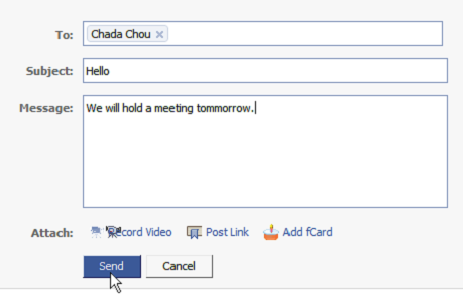Next time you try to contact me on Facebook with a random message, get ready to shell out Dh60.
Well, I am no celebrity, so maybe not, but rumour has it that social media giant Facebook is set to charge users Dh60 (€12) to send messages to people that aren’t their ‘friends’ or ‘friends of friends’.
“The system of paying to message non-friends in their inbox is designed to prevent spam while acknowledging that sometimes you might want to hear from people outside your immediate social circle,” Facebook said in a statement.
This from a site that, on September 26, 2011, said: “A rumour on the Internet caught our attention. We have no plans to charge for Facebook. It’s free and always will be.”
Not so free anymore, it seems.
Now, it says that it is “testing a number of price points in the UK and other countries to establish the optimal fee that signals importance. Part of that test involves charging higher amounts for public figures, based on the number of followers they have. This is still a test and these prices are not set in stone.”
Meaning it could charge more.
According to a report in The Sunday Times, the company is testing a sliding scale of fees for celebrities based on how popular it perceives an individual to be.
A message to Olympic diver Tom Daley, for instance will cost £10.68 (Dh60), while US rapper Snoop Dogg commands a message fee of £10.08 (Dh57).
The pay-to-contact system follows a simple algorithm in that the more friends/followers a celebrity has, the higher the amount an average Ali will have to shell out to contact her/him.
Facebook calls them ‘priority messages’, equating the charge to the ‘jump-the-queue’ premium one might have to pay for, say, getting to the top of a queue at an amusement park ride. The company insists they are aimed at preventing those in the limelight from being bombarded with unwanted communications from strangers, and there will be a ceiling to the number of paid messages a user can receive in one day/week.
The scheme has already been tested in the US, where Facebook began charging users on a pilot basis in December 2012, and has now decided to begin rolling out the system on a global scale.

